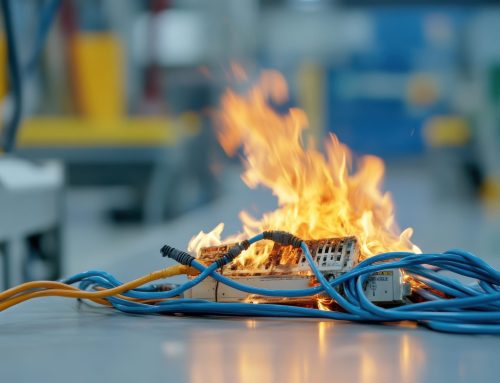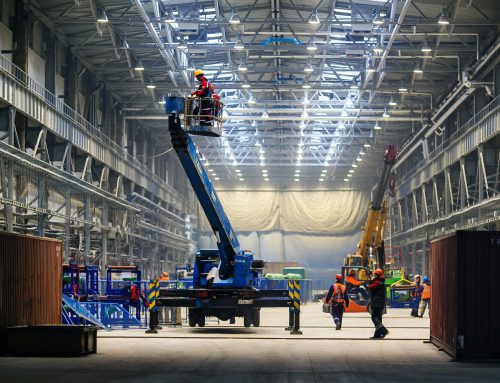State by state, day by day, more businesses are being forced to amend hours of operation or close down altogether as the Coronavirus shows no signs of slowing in the U.S. The global pandemic has hit the U.S. economy in ways we never thought possible, drastically changing the American economic landscape. Some industries are hit much harder than others, but we’re all feeling the pinch of a sudden recession that no one had in their sights.
Most American industries are suffering in some way through this pandemic, but many companies in the service industry are finding ways to recreate their business model to offer critical services to Americans even in the midst of a global pandemic.
Importance of the service industry
Service industries involve the sector of companies that offer goods/services to other businesses as well as consumers. These services include tradesmanship (i.e. mechanic, plumber, HVAC), restaurants, computer services, accounting, engineering, fire protection services, etc.
When Americans are being told to stay home, many employees in the service industry can’t do that in order to provide the goods/services provided to consumers. When the life and safety of Americans is involved, these services are even more critical. We need to maintain the safety of ourselves, our homes, and our businesses, even when in quarantine.
Changes in business operations
Since many service industries involve in-person communication, companies in the industry have been making changes to the way they conduct business and offer their goods/services. To help businesses identify risk levels in workplace settings and determine any appropriate control measures to implement, the CDC released a document to be used as guidance in planning for a pandemic like COVID-19. The goal is to help businesses identify risk levels in workplace settings and to determine any appropriate control measures to implement.
Members of the service industry can still offer their essential services, but with some changes to their overall business operations. For example, the CDC recommends businesses develop an infectious disease preparedness and response plan.
The first step in developing such a plan is to assess the level of risk associated with your industry. Do you have employees in customers’ homes? Do you have customers in-office on a regular basis? Take those high-risk situations and make changes that would lower the risk or omit the risk of infection. This can mean practicing social distancing, staggering work shifts, downsizing operations, delivering services remotely, and other exposure-reducing measures.
Business owners in the service industry should also explore options for conducting essential operations with a reduced workforce, including cross-training workers across different jobs in order to continue operations or deliver surge services.
Finally, businesses should plan for interrupted supply chain or delayed deliveries and adjust accordingly. This might mean diversifying their supply chains.
These CDC recommendations for business operations are leading the charge in providing guidance to the service industry so that they may still be operational during these times. It can be challenging for the service industry to amend business operations to more virtual communication or telework since so much of their work is in the field. But it is possible.
For example, as a fire protection company, Fire Systems, Inc., has been able to rework daily operations and use telecommunicating where possible to ensure continuation of service for their customers. A company like Fire Systems provides life-saving services that must be carried out on a regular basis. By changing the way their technicians service fire protection systems and interact with customers, they are ensuring the safety of the techs, customers, and buildings in which they protect. Others in the service industry like HVAC companies or plumbers are offering “no contact” service options where they can provide services at your home or business with no in-person contact. All payment, communication, etc. is done on the phone or online and all safety protective measures are taken while the tech is in the home/business.
Safety measures
Most changes to business operations are intended to promote the safety of employees and customers, but there are some specific safety measures that the CDC has laid out for all businesses, the service industry included. These basic infection prevention measures include:
- Promoting frequent and thorough hand washing, including by providing workers, customers, and worksite visitors with a place to wash their hands. If soap and running water are not immediately available, provide alcohol-based hand rubs containing at least 60% alcohol.
- Encourage workers to stay home if they are sick.
- Encourage respiratory etiquette, including covering coughs and sneezes.
- Provide customers and the public with tissues and trash receptacles.
- Employers should explore whether they can establish policies and practices, such as flexible worksites (e.g., telecommuting) and flexible work hours (e.g., staggered shifts), to increase the physical distance among employees and between employees and others if state and local health authorities recommend the use of social distancing strategies.
- Discourage workers from using other workers’ phones, desks, offices, or other work tools and equipment, when possible.
- Maintain regular housekeeping practices, including routine cleaning and disinfecting of surfaces, equipment, and other elements of the work environment.
For employees in the service industry, additional safety measures may include disinfecting service vehicles and tools. It may involve wearing personal protective wear when out on service calls or adding new training for workers who need to wear protective clothing and equipment. Every company has to take these guidelines and amend to their own needs, and for the service industry, that means finding ways to allow techs/employees to do their jobs the safest way possible.
Business as usual
Hopefully this pandemic will soon loosen its grip on the American economy and world as a whole. Many lessons have been learned during the COVID-19 pandemic. For consumers, we’ve never been more thankful for members of the service industry who keep us safe and comfortable.
Business as usual will resume, but not yet. Companies in the service industry and beyond are aware of the impact on their individual businesses and industries as a whole. The planning doesn’t stop here. In fact, the CDC warns that “lack of continuity planning can result in a cascade of failures as employers attempt to address challenges of COVID-19 with insufficient resources and workers who might not be adequately trained for jobs they may have to perform under pandemic conditions.” We are still in the midst of the pandemic and the situation is very fluid. Every day brings new challenges; new hurdles.
Fire Systems is thankful to be such a well-established fire protection company in the community. We have been protecting Atlanta businesses for over 30 years. And while we have never seen anything quite like the COVID-19 pandemic, we are poised and positioned to continue offering our life-saving services to all of our customers. Please visit our website or call us today at 770-333-7979 if you have any questions about our COVID-19 response plan.






